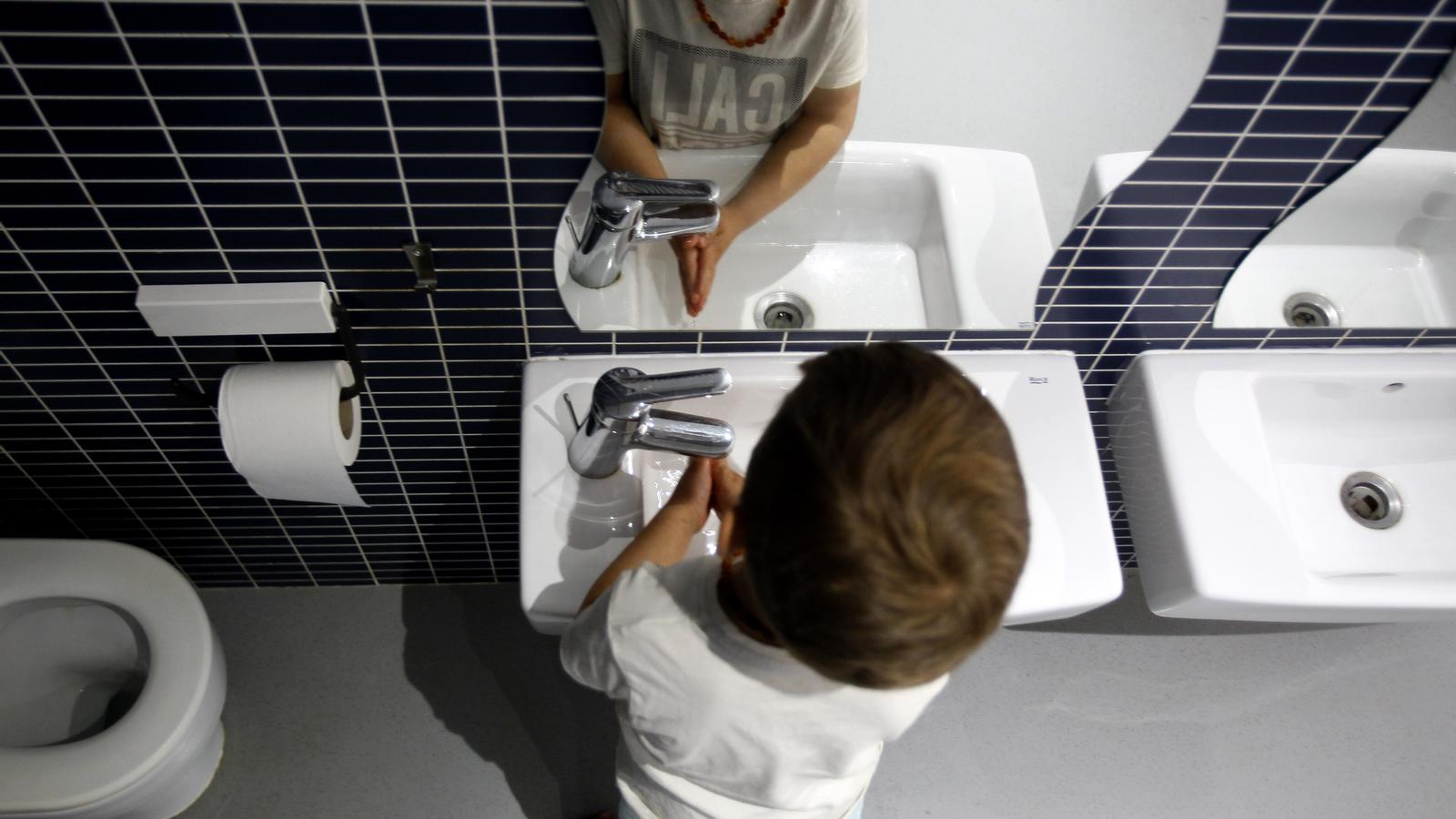Teachers defend the work of daycare centers: "We don't keep children, we educate them."
While the supply and demand for places for children aged 0-3 increases, the sector defends its fundamental role in children's development.


PalmIn Spain, compulsory education begins when a child is six years old (first grade of primary school), although most families enroll their children until they are three years old (fourth grade of kindergarten). Previously, there was the 0-3 stage, which until a few years ago was unknown and only a small number of children could access. All of this occurs in a context of great diversity, with public, private, subsidized, directly and indirectly managed schools. With the free provision of this stage, initiated by the Pact government and continued by the PP, the number of applications for places has skyrocketed, but those that exist are not enough to meet demand. Meanwhile, 0-3 education professionals do not feel valued and believe that daycare centers are still perceived as places to leave children.
However, daycare centers do essential work to address the later educational stages. "The LOMLOE (Spanish Organic Law on the Use of Childhood Education) states that the 0-3 cycle is educational. We must bear in mind that, when it comes to starting school at 3 years old, there is a big difference between children who have been with us and those who have not. Ours have many advantages in terms of acquired routines, autonomy, and socialization," explains Xisca Arbós, director of the centre.
In most 0-3 centres, all children follow their own path without professionals setting a specific pace for them. Their role is to accompany them in their independent progress and, where appropriate, guide them. "Each child makes their own journey. Children begin to walk not because I make them walk, but because they need to. Those of us who accompany them must know how to focus on them to ensure that they have emotional security, are well cared for, and want to walk." Busquerets de Maó.
Undervalued work
The Menorcan professional laments that, although there is beginning to be a change in mentality regarding daycare centers, there is still a long way to go before they are valued equally as much as other educational centers. "It's impossible to care for children with the high ratios we have. Free tuition has been announced without taking into account that low ratios are needed to address diversity and that the education provided to all babies must be of quality. It's not enough to simply leave them in one place; that place must meet certain requirements," she explains.
Accompanying young children requires time, both in waiting and in direct intervention by professionals. "In a classroom with seven children from four months to one year old, there are many moments missing to attend to individuality, because each child has their own pace and needs," explains Mir.
While the rule states that, to access daycare, children must be at least four months old, it also allows, in exceptional cases, for babies over eight weeks old to be enrolled in school. "It's too early. They are too small to go to daycare, because in the first few months it is necessary for the child to build a bond with the family and, above all, it is necessary for the entry of Mar, vice-dean of the Faculty of Education and head of studies for the degree in Early Childhood Education. The 0-3 stage, she adds, is fundamental in human development, as it is a period in which the person is formed on a cognitive, psychomotor and emotional level. "They are three years in which a lot of progress is made," she summarizes.
The 0-3 centers not only accompany children, but also protect families in the new vital stage of parenting. This intervention is key in cases of parents who lack a family network that can support them. "There are people who come from outside, who have no one here, and we validate their emotions, so they see that they do the best they know how and that no one loves their children as much as they do. Every family is unique, and every child, no matter how small, comes with a burden that we must take care of," explains Susana Páramo, head of the Balearic Islands (Adeipib), who laments that they are increasingly receiving younger children. "At four months old, a child should be at home. We make them float, but they should be with the family," she says.
But she also understands that, if babies arrive so young, it's because the economic model means that many families cannot afford to extend the time with their children. Some even arrive who have not exhausted their maternity leave. "Nurseries, of course, help with work-life balance, but we are not spaces for work-life balance, but for education. Our role is not to store. We do work as important as that done in schools," she claims.
A precarious cycle
Despite the importance of the cycle, educators believe that the diversity of center types, management, salaries (some earning a thousand euros), and the lack of specific regulations are detrimental to children. For example, 0-3 centers lack cafeteria regulations, although many offer the service. Having legal support is a long-standing demand. "If nothing bad happens, it's because we're lucky," says Páramo. No one informs them about how to manage allergies, and each center acts according to its own beliefs, usually with limited assistance. "There may be a child who is allergic to nuts, and just when you're not paying attention, they grab one and there's a disaster," explains the president.
The workers face these difficulties, and many of them, those who work in outsourced and private daycare centers, do so in exchange for the 1,611 euros gross monthly salary that the national collective bargaining agreement provides teachers. "In the Balearic Islands, we have different salary scales depending on whether they are from Menorca, from a Regional Ministry daycare center, a City Council daycare center, an outsourced daycare center, or a private daycare center," explains Pepa Ramis, head of childcare education at the CCOO (Working Council of Workers' Organizations). "Within the same professional category, there are differences of 600-700 euros per month, depending on the type of center," she says. A regional childcare agreement is currently being prepared that aims to dignify the profession.
The compensatory role of daycare centers in offsetting inequalities cannot always prevent social changes from impacting children's development. This is most noticeable in the second cycle of preschool (ages 3-6), where children arrive with acquired habits that are difficult to correct if families don't help. Screen abuse is one of the biggest headaches for professionals. "Many children are addicted to it and have difficulty speaking and socializing," explains Toni Perelló, a teacher at the Ses Cases Noves Primary School in Marratxí. "There are children who arrive sitting in strollers, with a pacifier in their mouth and a cell phone in their hand," summarizes Joana Maria Mas, a preschool teacher at the Ses Rotes Velles Primary School. "When school ends, you see that child who has been walking all day again sitting in a stroller, with a cell phone and pacifier," she explains. There are situations that surprise teachers. They manage to get children to give up their pacifiers, but there are families who don't respect it at home. "All the work is on the floor," summarizes Arbós.
Three-year-old students have changed a lot over the last decade. Now, explains Mas, there are children who are "very underdeveloped" and with a linguistic delay that causes them to speak poorly. The situation is such that some centers have implemented language stimulation programs delivered by speech therapists or tutors. However, this comes at the cost of postponing other content that is no longer a priority.
Cati Cebrián is an educator and member of the Federation of Families of Mallorca (FAPA). She argues that, during the first year of life, every child should be with their family, although the tourism model doesn't facilitate this. Cebrián points out that the increased demand for places for children aged 0-3 following free admission "demonstrates that there was a need that had never been addressed." She points out that it's important to do a lot of educational work to show that daycare centers serve children, but also families. "Daycare centers are caring, supportive, friendly environments where children can develop their skills with trained adults to foster them. We must work so that all of society values the great work being done at the 0-3 level. This is essential work," she concludes.
